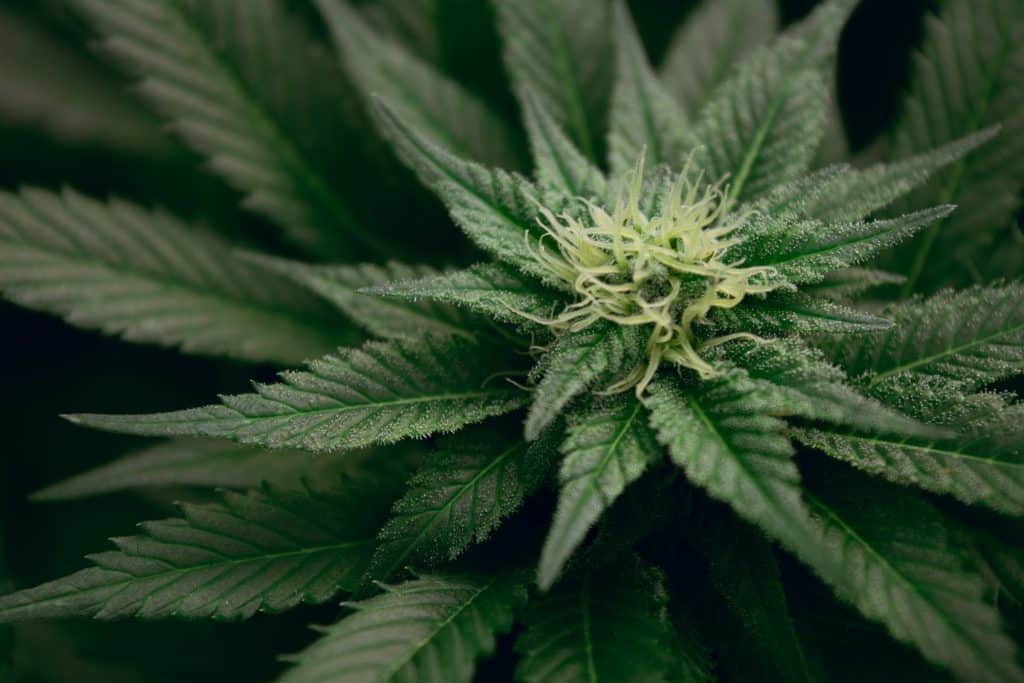Learn in this guide the difference between Indica, Sativa, and Hybrid Cannabis strains, how they’re grown, cultivation tips, and what common traits to look for.
Cannabis Subspecies Guide Contents:
The cannabis plant is versatile, hardy, and—unlike many kinds of plants—can survive in almost every climate in the world. However, thanks to evolution (and later on, selective breeding), the species has adapted to the landscapes in which it’s cultivated, and thus, vast variation between different cannabis plants is the norm today.
UNDERSTANDING THE CANNABIS SUBSPECIES
There are thousands of unique cannabis strains, and each has different characteristics that impact growth, production potential, flavor and aroma, and physiological effects on people. Yet, all of these strains can be grouped into one of three cannabis subspecies: Cannabis sativa, Cannabis indica, and Cannabis ruderalis.
The vast majority of photoperiod strains (strains that initiate bloom based on a change in light cycle) contain varying amounts of both indica and sativa genetics. Ruderalis, on the other hand, is a type of autoflowering cannabis that flowers based on age, and is often considered to be inferior to photoperiod cannabis morphologically. Although there is more to say in this regard, for the remainder of this article, we will be focusing mainly on the distinct characteristics of indica and sativa so the average grower can get a better idea of what to expect.

CANNABIS INDICA
Cannabis Indica is indigenous to today’s regions of India, Pakistan, Turkey, and Afghanistan. Originating in the harsh and varied environments of the Hindu Kush mountains, these stocky bushes develop wide, dark green leaves to soak up all available sunlight, flower quickly, and produce a plethora of dense buds.
GROWING Indica
Thanks to the short growing cycle offered by indicas, not to mention their short stature, they can be very convenient for home growers without too much time, space, or resources on their hands. Even outdoors, indicas are very resilient. Moreover, the fast flowering time of indicas means outdoor growers can harvest before the first frost of winter.
Buy Purple Deadhead Seeds Now
CULTIVATION TIPS
Although indica plants normally develop into a Christmas tree-like shape, this growth can be tamed and manipulated to even out the canopy and direct more light to all available budding sites. Techniques like topping and basic LST (low-stress training) can be used to give your plant the ideal shape for robust health and huge yields. Once you’re happy with how it looks, you can switch your vegging plant to the flowering phase by reducing light hours inside to 12 hours on, 12 hours off.
One of the major drawbacks you have to watch out for with indicas is also one of their greatest strengths: dense buds. As buds grow in size and put on weight, they become at much greater risk of developing mold, especially in humid regions with temperatures that foster pests and pathogens. Avoid this issue by carefully controlling environmental conditions inside, or by building necessary shelter outside (in case of rain, excess humidity, etc.). Having a small greenhouse or shed where you can hide your plants from inclement weather can be a great safety net.
Common TRAITS OF INDICA
• Short, bushy stature
• Broad, dark green leaves
• Dense buds
• Short flowering time
• Resilient to temperature fluctuations
• Susceptible to mold and pests
Does Indica seem like your type of strain? Great! Check out our Indica Strains to get your grow-op going!
CANNABIS SATIVA
Cannabis sativa is found mainly in the hot, dry climates of Africa, Asia, and Central America. These strains grow into tall, slender specimens with long, thin leaves. As they can exceed 6ft in height, Sativa typically takes much longer to mature than indica.
GROWING Sativa
Sativas require a lot of light and higher temperatures to thrive—just think about their natural habitat located relatively close to the equator. These plants also require a large amount of space, have much airier buds, and remain in the flowering phase for several weeks longer than most indicas. In their favor, these plants usually require less fertilizer and fewer feedings than indica plants. Moreover, thanks to their airier bud structure, flowers are less susceptible to mold and excess moisture.
Featured Sativa: Mac Attack (MAC1 X Animal Cookies)Buy Mac Attack Seeds Now
CULTIVATION TIPS
Sativa plants can be delicate, and have less chlorophyll than indicas due to their thin leaves. This also means that you need to give your sativa plants sufficient light, heat, and humidity. If you inhabit the Southern parts of the states, your sativa plants will be right at home in the warm, sticky weather of the south.
For those with more growing experience, you can tame the height of your sativa plants using the screen of green (ScrOG) technique. By situating a screen above your plant and weaving new growth through the mesh, you’ll create a flat canopy of buds that optimizes available space and yield potential. Like indicas, photoperiod sativa varieties require a change in light cycle to start blooming. Keep in mind that plants can continue to surge in height for the first couple weeks of the flowering phase, so make sure you have the space to accommodate this growth spurt.
Common TRAITS OF SATIVA
• Tall and lanky stature
• Thin, light green leaves
• Airy buds
• Longer flowering time
• Requires higher temperature and humidity
• Less susceptible to mold
For the growers who are into Sativa, check out our Sativa strains today!
HYBRIDS
While you can find 100% indica or sativa strains, most cultivars on the market today contain varying levels of both genetics. As a result, these “hybrid” strains can be indica-dominant, sativa-dominant, or split 50/50. This versatility allows breeders to create novel strains that harness the best features of both sativa and indica while eliminating the less advantageous features. For instance, a well-developed hybrid will feature the dense bud structure and short flowering phase of an indica, combined with the best traits of a given sativa to offer the best of both worlds.
Featured Hybrid: Alien Punch (GMO X Purple Punch)Buy Alien Punch Seeds Now
Growing Hybrids
Remember the ruderalis subspecies we referred to earlier? Hybrids can contain these genetics as well, although, as mentioned above, ruderalis is chiefly added to reduce flowering time since its other qualities are seen as inferior. Some photoperiod cannabis strains can contain a small amount of ruderalis, but these genetics mostly reside in autoflowering strains.
Typically, hybrids will inherit the easy growth of indica plants while keeping the highly sought-after effects offered by sativas. As such, hybrids have become the go-to for home growers and commercial cultivators alike.
CULTIVATION TIPS
Because Hybrid strains are so vast and so unique, there aren’t any known cultivation tips for the umbrella of Hybrid subspecies. However, each Hybrid strain does have the tendency to grow like its parent strains some of the time.
Common TRAITS OF HYBRIDS
• Takes morphology from both indica and sativa
• Generally brief flowering time
• Great yields
• Robust and resilient growth
Think a hybrid is the right strain type for you? Check out our Animal Cookies X Breeds for some seriously potent and well rounded Hybrid cannabis.
Conclusion
By the end of this guide you should now be able to delineate between Indica, Sativa, and Hybrid cannabis strains on your own. Best Bud Seeds doesn’t have a preferred strain subspecies, but we do have a flair for creating Hybrid strains, seeing that our catalog is full of new and innovative strains that pull the best characteristics out of popular strains and combine them into a super charged plant medicine. In the end it doesn’t matter if you cultivate Indica for stress and sleeplessness, or Sativa for a more uplifted anxiety relief, or Hybrid for the sheer fun of growing a Hybrid, all that matters is the quality of your genetics. Buy Indica, Sativa, and Hybrid seeds from Best Bud Seeds today.
Have you started a grow using Best Bud Seeds?
Tag Us In Your Grow On IG! @BestBudSeeds
